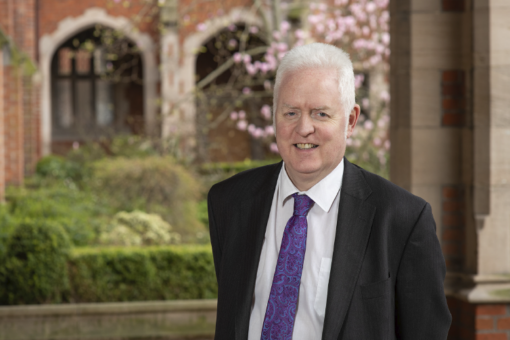
On March 29, 2020, I lost my uncle, a community worker in the heart of the Liberties in Dublin, to COVID-19. He was a legend in the area, so his passing has been felt by many, including myself.
Later that same day, my colleague Eduard Vrdoljak, a doctor in Croatia, while consoling me on my loss, shared with me what he was experiencing in his clinical practice – “people are fearing a COVID-19 diagnosis more than a cancer diagnosis”.
Over the next few days it struck me that Government-backed public health measures to combat the COVID-19 pandemic were having unintended but profound effects on cancer services and cancer outcomes.
Despite my loss, I sat down and wrote an opinion piece, which I published with Eduard and another colleague in the European Journal of Cancer. We highlighted how the focus of repurposed health services across Europe on the pandemic could compromise national cancer screening programmes, prompt an increase in late cancer diagnoses, and result in the cancellation or postponement of cancer treatments. Looking back now at that opinion piece, which came online in mid-April 2020, I’m sad to say that we were proved right by what transpired over the past 12 months.
At the time, there were no solid data on the effects of the pandemic on cancer. So we quickly reached out to hospitals across the UK and captured data in “real time” to determine the exact impact of COVID on cancer services and cancer patients. Our results were worrying, so worrying that we immediately shared them with the chief medical officers in the four nations of the UK, with the National Clinical Director for Cancer in England and with SAGE, the UK’sScientific Advisory Group for Emergencies.
For people with suspicious symptoms of cancer (eg. a lump on their breast, difficulty swallowing, blood in their pee or poo), we found that, compared with before the pandemic, seven out of 10 people were not accessing specialist cancer diagnostic services, while for four out of 10 cancer patients their chemotherapy was delayed.
Modelling the potential impact on mortality, we found that between 7,000 and 18,000 people with cancer were at increased risk of dying. Subsequent data from ourselves and other researchers confirmed our worst fears – all parts of the cancer pathway were adversely affected, while cancer research almost came to a standstill. Our data contributed to the decision to restart cancer services. I’m so glad we acted quickly and shared our data before we published it (not something that scientists normally do).
Recognising that COVID, like cancer, does not respect borders, we subsequently reached out and worked with our colleagues here in Ireland to quantify the impact of COVID-19 on cancer in Ireland, emphasising the importance of cross-Border co-operation. Unfortunately, just as we found in Northern Ireland and the wider UK, the pandemic has wreaked untold damage on cancer services in Ireland, adversely impacting on Irish citizens and Irish cancer patients. Cancer referrals dropped by over 25pc, cancer diagnoses dropped by between 40 and 50pc, while cancer treatments were postponed or delayed in nearly 30pc of patients.
The risk of an impending cancer epidemic on the island of Ireland as a direct result of the pandemic and national lockdowns cannot be underestimated. Cancer already surpasses cardiovascular disease as the most frequent killer on the island of Ireland. COVID-19 will further exacerbate the situation, leading to thousands of excess deaths in people with cancer over the next decade. We are at a significant inflection point for cancer research and cancer care on the island of Ireland, made all the more urgent by the disastrous impact of COVID.
We have made significant progress in cancer research and cancer control on this island over the past two decades. But we must act decisively and rapidly to ensure that cancer research and care are maintained and indeed enhanced as we move forward. Otherwise, the progress we have made in cancer in the past 20 years may be reversed in less than 20 months. Cancer must never become the forgotten C in the fight against COVID.
On my uncle’s first anniversary, I was of course somewhat sad. But I’m encouraged that his death perhaps instilled in me a resolution to work in close collaboration with colleagues to achieve something tangible for patients in the fight against this deadly disease. My uncle, a man who very much put people first, would have liked that.
Professor Mark Lawler is Scientific Director of DATA-CAN and Associate Pro-Vice-Chancellor, Professor of Digital Health and Chair in Translational Cancer Genomics at Queen’s University Belfast.
This opinion piece was published in the Irish Independent on 6 April 2021. 0 Likes Share
